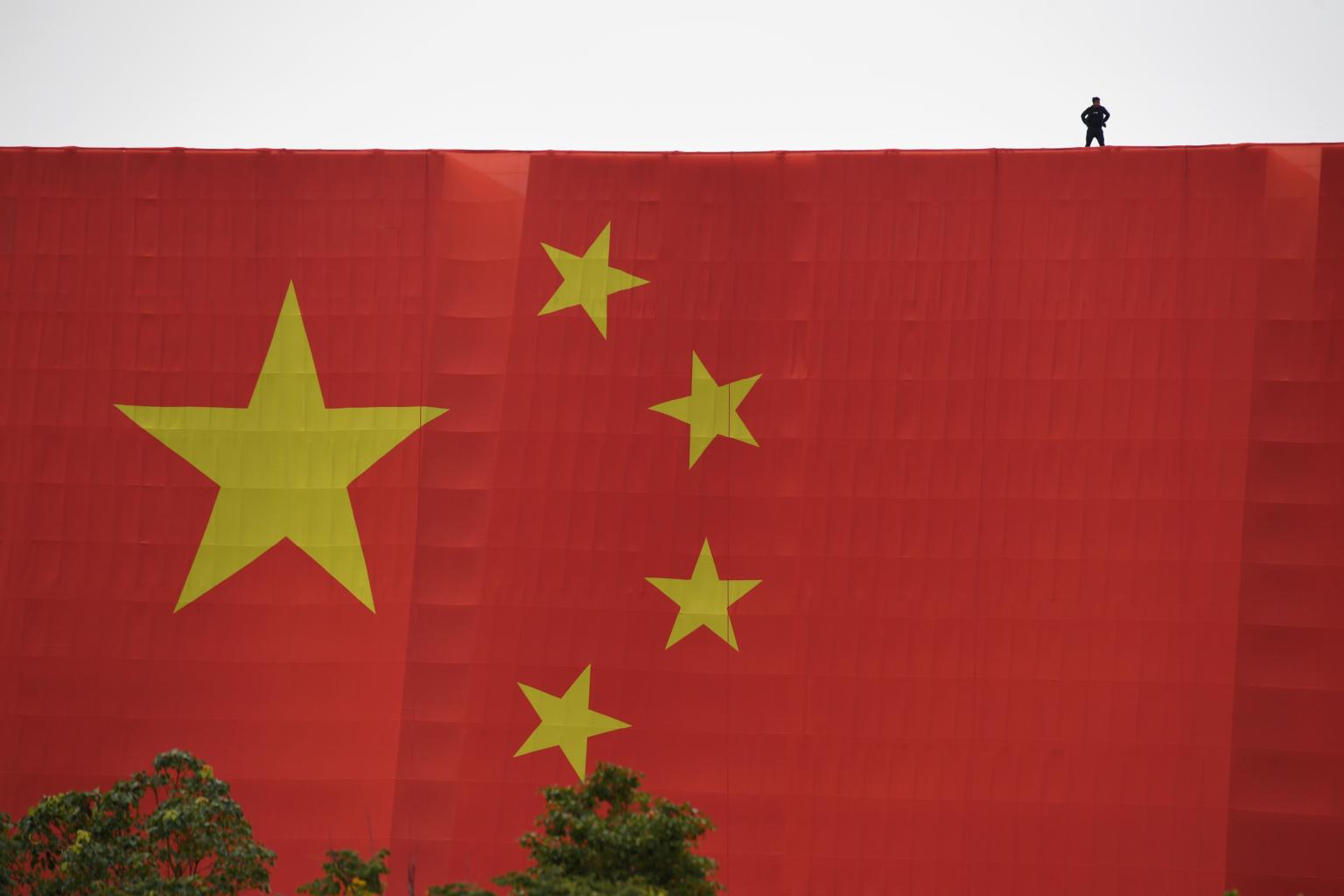China will never seek hegemony or expansion as it develops: White Paper
Sign up now: Get insights on Asia's fast-moving developments

Over the past 70 years, while working hard to realise their own development, the Chinese people have contributed to world peace and added momentum to the common development of all countries, the white paper noted.
PHOTO: REUTERS
BEIJING (XINHUA) - China will never pursue hegemony or expansion, nor will it seek to create spheres of influence, no matter how the international situation changes and how China develops itself, said a White Paper issued by the State Council Information Office on Friday (Sept 27).
It has always been China's unswerving national will to strive for a peaceful international environment favourable to its own development, and to better safeguard world peace and promote common development through its own, according to the White Paper titled "China and the World in the New Era".
Noting that peace, development, cooperation and mutual benefits are the trends of the times, the White Paper said China's path of peaceful development is in line with the trend of history and the general trend of the world.
China naturally develops and becomes stronger, but does not want to threaten, challenge or replace any other country in the process, nor will it seek hegemony, according to the White Paper.
"From the mid-19th century, China was abused by the Western powers and left with indelible memories of the suffering brought about by war and instability. It will never impose the suffering it has endured on other nations," the White Paper said.
The White Paper said that China has injected positive energy into world peace and development.
"China's development path has unique Chinese characteristics, and a broad and farsighted global vision. It is dedicated to the interests of all of humanity," said the paper.
Over the past 70 years, while working hard to realise their own development, the Chinese people have contributed to world peace and added momentum to the common development of all countries, it noted.
China contributes solutions to world peace and development, safeguards world peace through real actions, and promotes common development worldwide, it said.
In the 1950s, China, India and Myanmar jointly proposed the Five Principles of Peaceful Coexistence. These have become basic norms for international relations and fundamental principles of international law.
In recent years, China has proposed a raft of significant international concepts and initiatives, including a global community of shared future, a new model of international relations, and the Belt and Road Initiative.
Since reform and opening up in 1978, China has cut its armed forces by more than four million, figures from the paper show.
Over the six decades since China began to provide foreign assistance in the early 1950s, it has provided 166 countries and international organisations with nearly 400 billion yuan (S$77 billion in today's exchange rates) in aid, and dispatched more than 600,000 aid workers, of whom more than 700 had died for the development of other countries.


